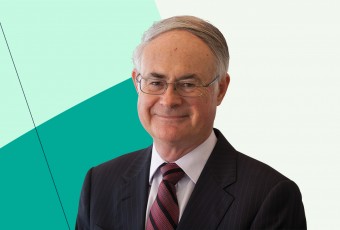In 2012 the European Union's highest court, The Court of Justice for the European Union (CJEU) in the case UsedSoft v Oracle made the following decisions:
- Oracle's software licence was a contract of sale
- the terms of the licence could be ignored
- the downloading of the software from Oracle's website by the licensee (now considered a purchaser) exhausted Oracle's right to control further distribution of the downloaded copy
- it was therefore not an infringement of Oracle's copyright in the software for the licensee to onsell his licence
- the trading of second hand licences and/or copies of the software was lawful.
Case file
Oracle supplied enterprise level client-server computer software in Germany, 85% of which was transferred to its customers by download from Oracle's web site after customers had acquired a licence of the software from Oracle. The licence was for an unlimited period and among other terms the licence was made non-transferable. UsedSoft acquired from Oracle's customers, who no longer wished to use the software, their software licences for the purposes of resale. UsedSoft's customers then downloaded the software from Oracle's web site for their own use, using licence keys provided to the original licensee with the licence.
Oracle objected to the resale of its licences and sued in the German courts. The case went as far as the Federal Court of Justice, Germany's highest court, who felt the need to refer certain questions on European Union law to the CJEU for clarification.
What the Court said
Under the EU's software copyright law (Software Directive 2009) the first sale in the EU of a copy of a computer program by the right-holder, exhausts the distribution right (provided by copyright) within the EU of that copy. Oracle argued there was no sale as its licensees did not own the copy on their servers but were merely licensed to use it. The CJEU said a sale was "an agreement by which a person, in return for payment, transfers to another person his rights of ownership in an item of tangible or intangible property belonging to him". It said that Oracle's licence transaction coupled with making available the software by download to its customers for their permanent use constitutes a 'first sale ... of a copy of a program' with the result that under the Directive Oracle's right to control further distribution was extinguished. The CJEU did not concern itself with the download process which would have revealed that Oracle did not even deliver, let alone sell, its copy and the copy assembled at the user's server was a different one.
Consequences
This decision does not mean only that software developers cannot prevent second hand sales of their software by their European licensees. It means software licence agreements and all their terms and conditions (not just the one prohibiting transfer) can be ignored by European courts if the licence period is indefinite, and probably even if it is tied to the lengthy period of copyright in Europe - 70 years after death of last surviving programmer. Such a licence will be regarded as a simple sale and sales of personal property cannot be tagged with conditions on how the property can be used.
This means, for example, that if a licence for software to be downloaded has an indefinite or long period then the usual restrictions or obligations placed on a licensee as a condition for granting the licence such as number of servers, server location, confidentiality, security, field of use, termination for breach will all be unenforceable.
Possible impact on Open Source Licences
The Oracle software was proprietary, but there is nothing in the CJEU's logic inUsedSoftthat would prevent it from applying to source code licences, whether the rarer proprietary source licence or a more common free/open source licence. The application to open source licences such as the Gnu General Public Licence is discussed in a separate article.
What can be done?
Many international commentators (including myself), have been critical of the reasoning and outcome of this case. But are software licences in Europe really dead or can a developer get around the CJEU decision? Because the CJEU used the indefinite duration of the Oracle licence to allow it to categorise it as a sale then one 'easy in theory, cumbersome in practice' solution would be to have a separate licence for European users which is time-limited with periodic renewals being required. Another would be to not allow the user to have possession of a copy of the software and to use the 'software as a service' (SAS) business model, presumably from the Cloud.


